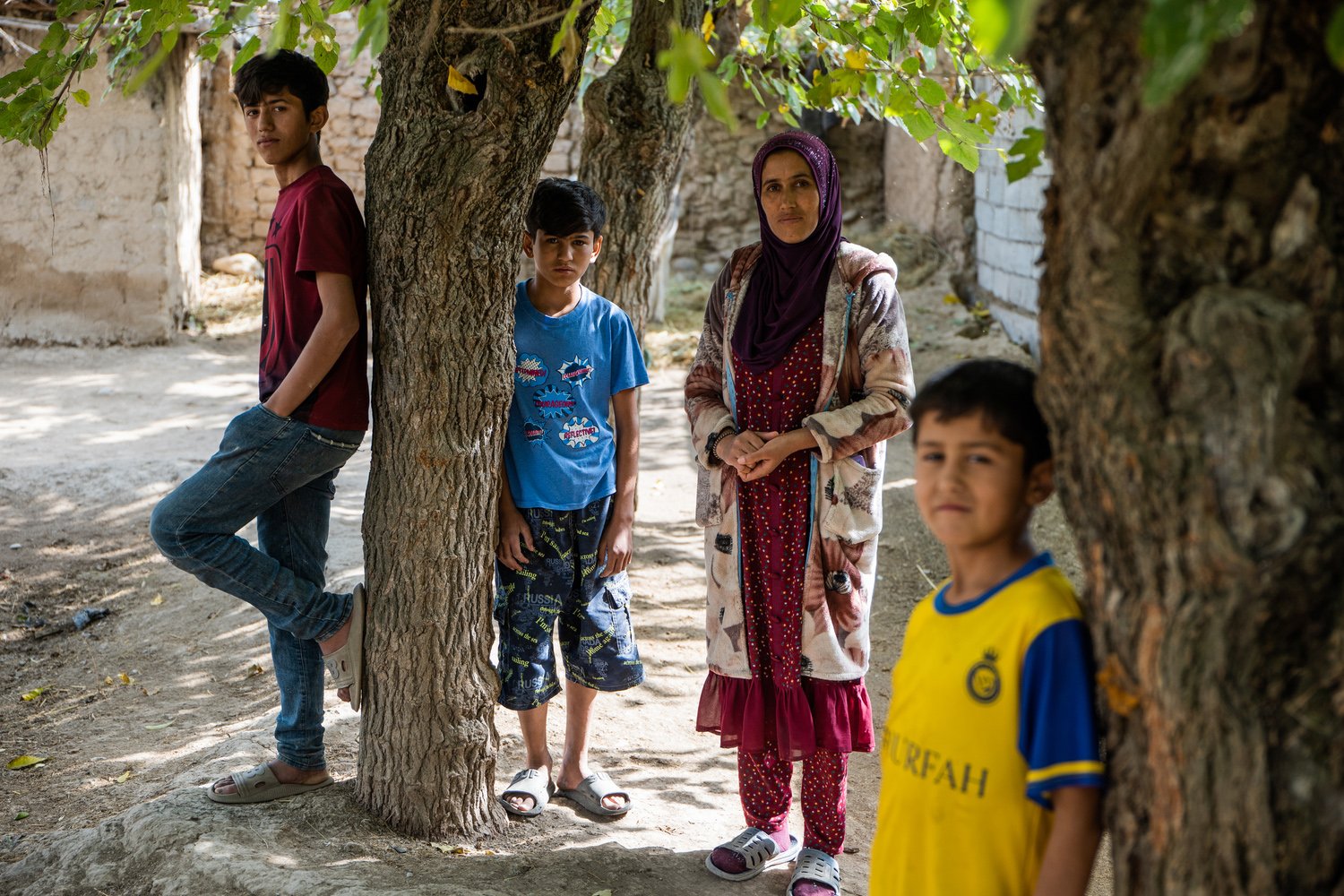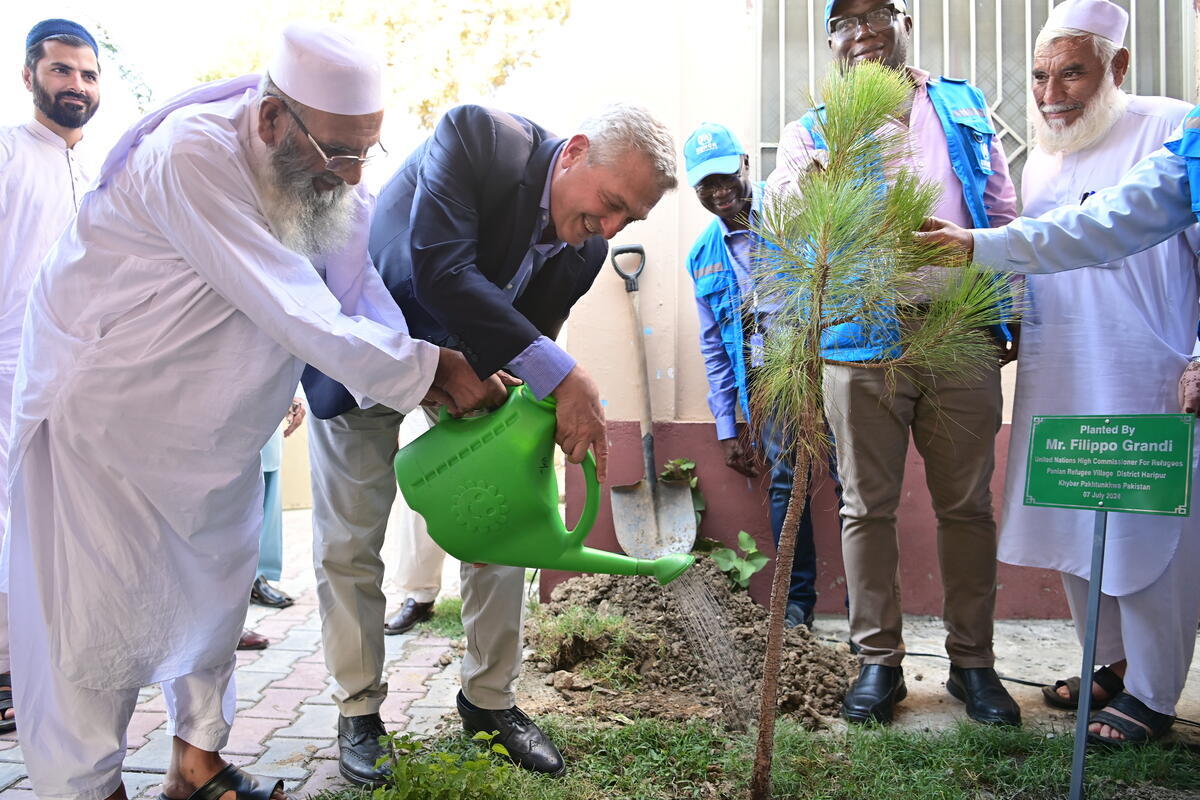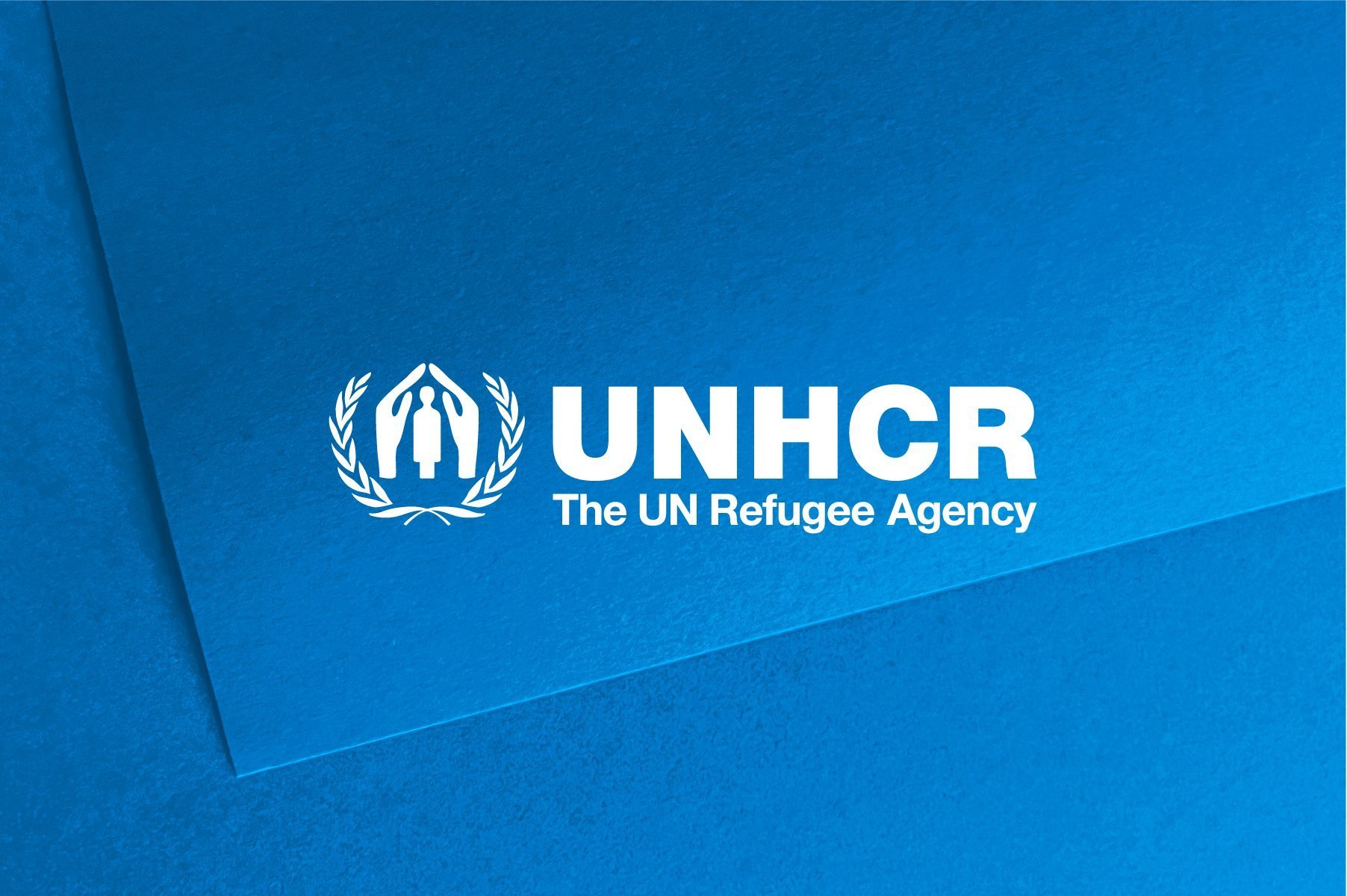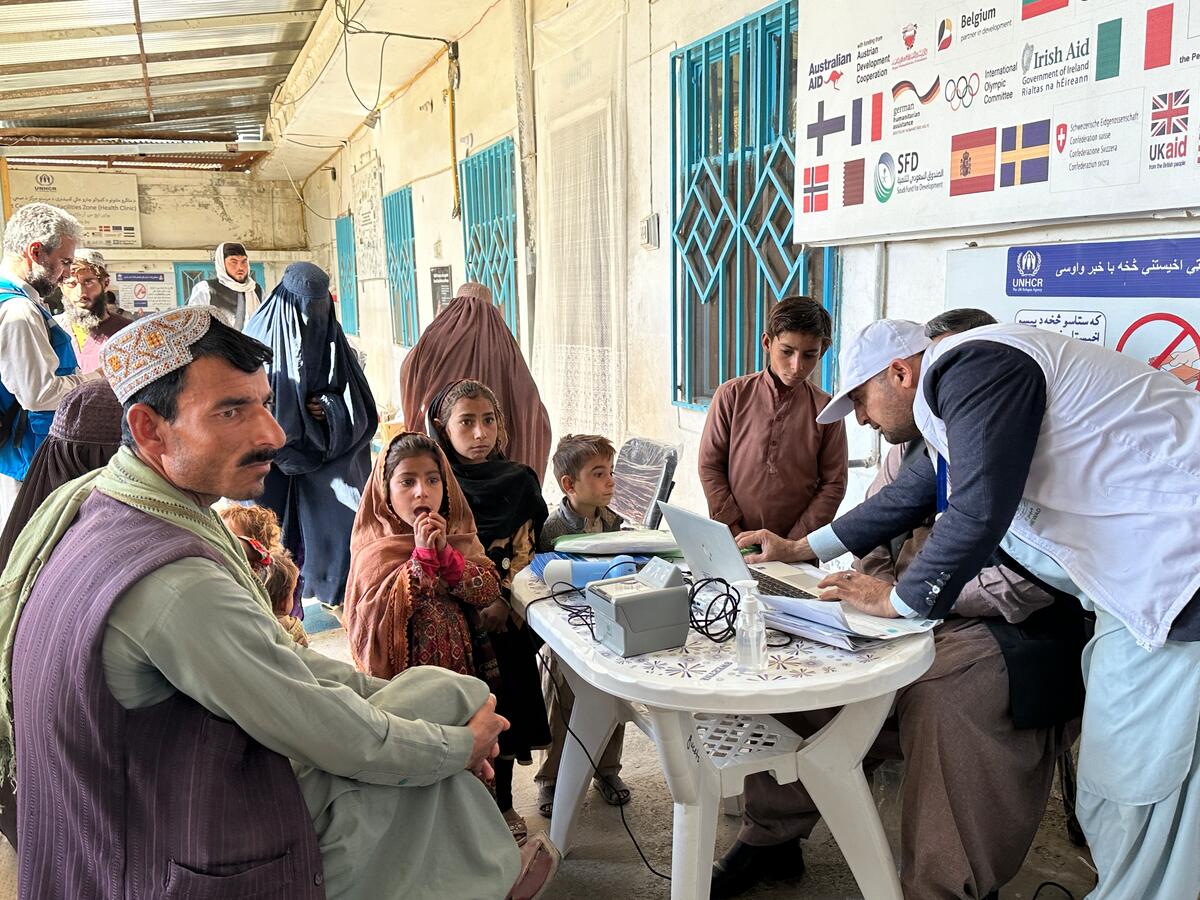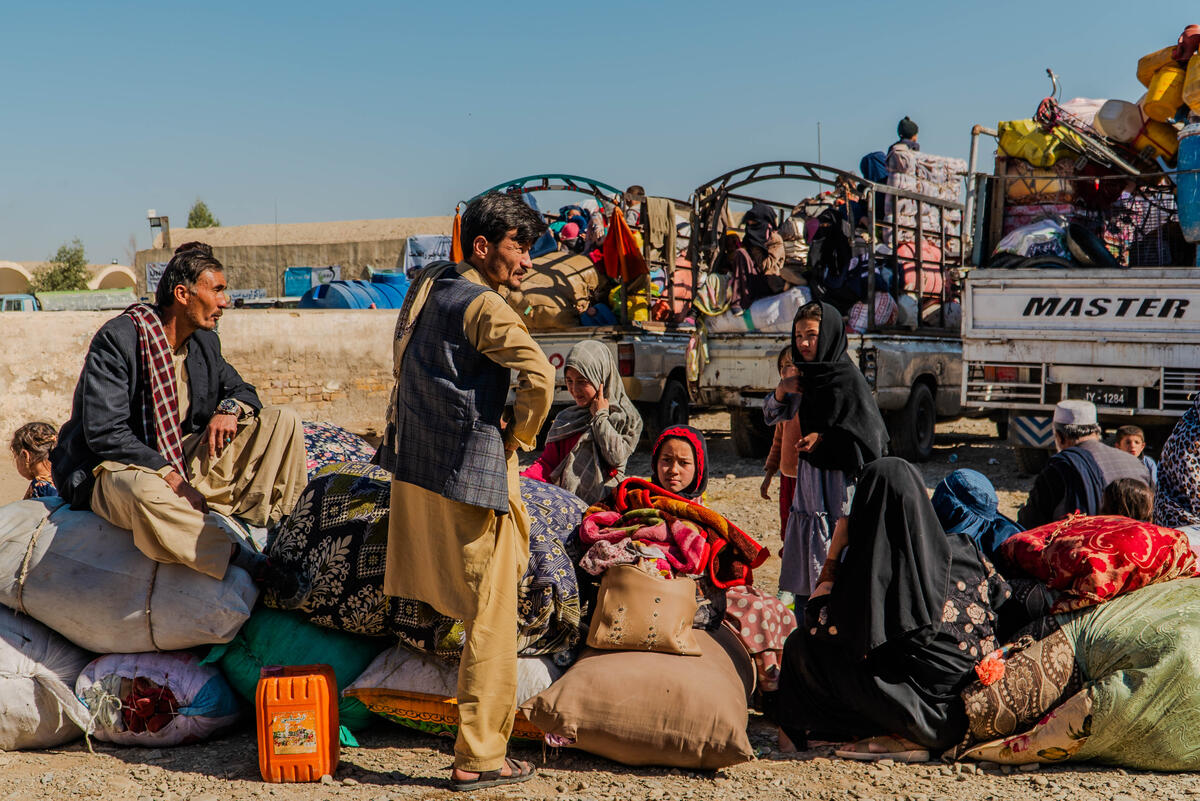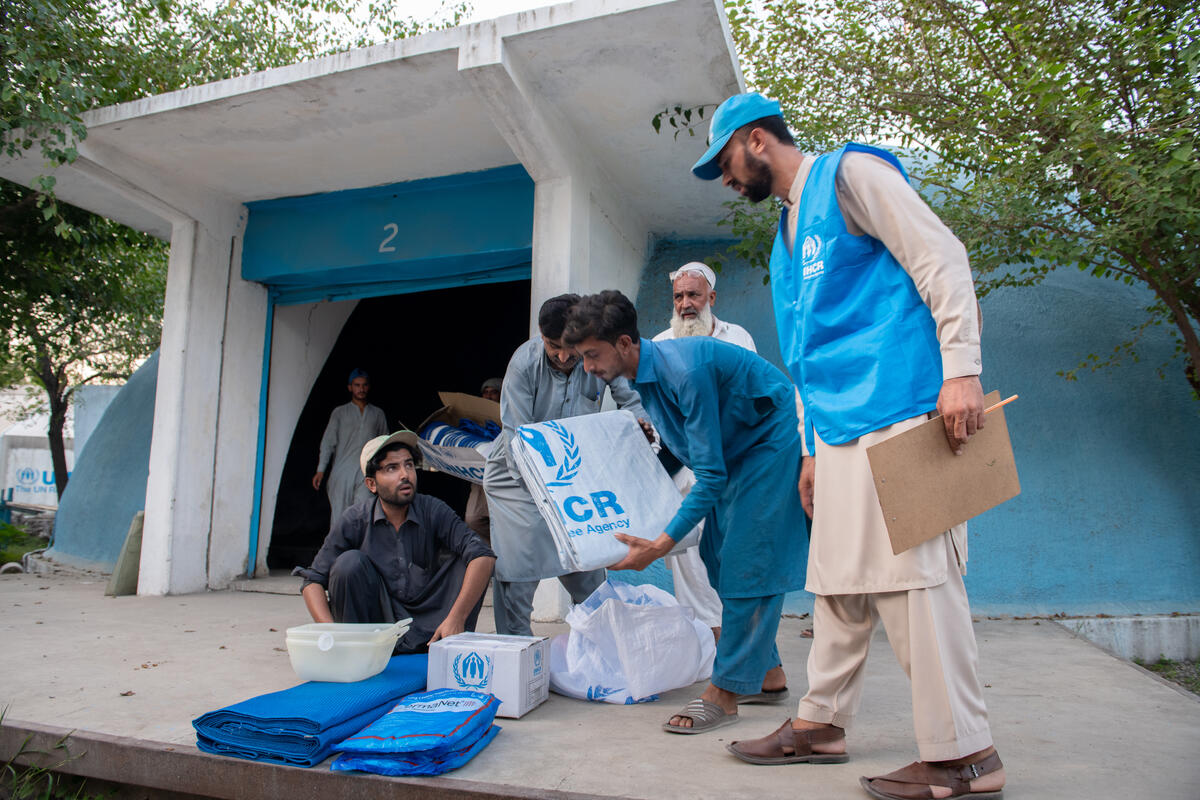Long-time Tajik refugees return home from Pakistan
Long-time Tajik refugees return home from Pakistan

DUSHANBE, Tajikistan, October 1 (UNHCR) - In a series of flights organised from Pakistan, the UN refugee agency has completed the repatriation of 251 Tajik refugees, many of whom had fled their homeland as infants.
On September 27, 52 Tajik refugees arrived in the Tajik capital of Dushanbe in the last UNHCR-organised repatriation movement. Two Tajiks were left behind, however, as one heavily pregnant woman was rushed to the hospital shortly before the plane was due to take off. Her husband left for Dushanbe with their two children, and she will follow later with their newborn child.
The voluntary repatriation programme started in mid-August with the departure of 123 Tajiks from Karachi in Pakistan, with three flights being organised using UNHCR-chartered Tu-134 and Tu-154 aircraft. The Tajik refugees - some of them now married - were asked to sign voluntary repatriation forms to verify their willingness to return home.
The International Organization for Migration (IOM) provided assistance for the $60,000 operation. It organised buses to transfer the returnees upon their arrival in Dushanbe to a medical facility near the Tajik capital, where they could be checked before returning to their home areas in the south of the country.
The plight of Pakistan's Tajik refugees started a decade ago. In 1992, hundreds of thousands of people fled fighting that erupted soon after Tajikistan's independence from the former Soviet Union. Most became internally displaced persons, but thousands of others left the country.
More than 50,000 Tajiks fled to neighbouring Afghanistan, where they sought safety in the north of the country. UNHCR and other humanitarian agencies provided assistance to the refugees, but security remained a problem and facilities in Afghanistan were limited. Over 1993-1994, many of the Tajiks decided to send their children onwards to Pakistan for safety and schooling.
The refugees - many of them as young as five, while others were in their teens - were admitted into Pakistan's madrassa schools. Estimates vary on the number of Tajik children who were sent to Pakistan, but observers believe that between 700 and 1,200 arrived in the country. Tajik consular officials registered many of the young refugees as they arrived, but the Tajiks blended in well with the Afghan exiles in Pakistan and were soon overlooked against the backdrop of Pakistan's huge refugee population.
In the late 1990s, Afghanistan's Tajik refugees returned home under a UNHCR-assisted repatriation operation following the 1997 peace accords that established a power-sharing agreement in Tajikistan. But the students remained in Pakistan.
In 1999, as Tajik parents clamoured to be reunited with their children, UNHCR and governments of Tajikistan and Pakistan agreed to organise their return, but the first movements were delayed.
Beginning in 2002, as thousands of Pakistan's Afghan refugees began to leave, many of the Tajiks, now young men, began approaching their country's embassy in Islamabad asking for help to get home. The Dushanbe government itself organised the return of some 300 refugees, but funds for the operation ran low and the authorities turned to the UN refugee agency for help.
UNHCR staff in Pakistan and Tajikistan worked together with the two governments to organise the return flights, said the refugee agency's Nicholas Coussidis, who heads its liaison office in Dushanbe.
"We agreed to bring back the refugees strictly on a voluntary basis," he said. "The issue of family reunification was important."
Although the return operation has now been completed, UNHCR stands ready to help other Tajiks in Pakistan who may wish to go home. For those who have already returned, the refugee agency will continue to monitor their reintegration. Many of them now speak English, thanks to their schooling in Pakistan. They also learnt valuable computer skills.
"Part of our obligation is to go back as soon as possible and talk to them to see how their reintegration is going on, to see if they need help," said Coussidis. He added that the Tajik government wants to help ensure their successful reintegration, and has organised vocational training programmes and set aside jobs for the returnees.


